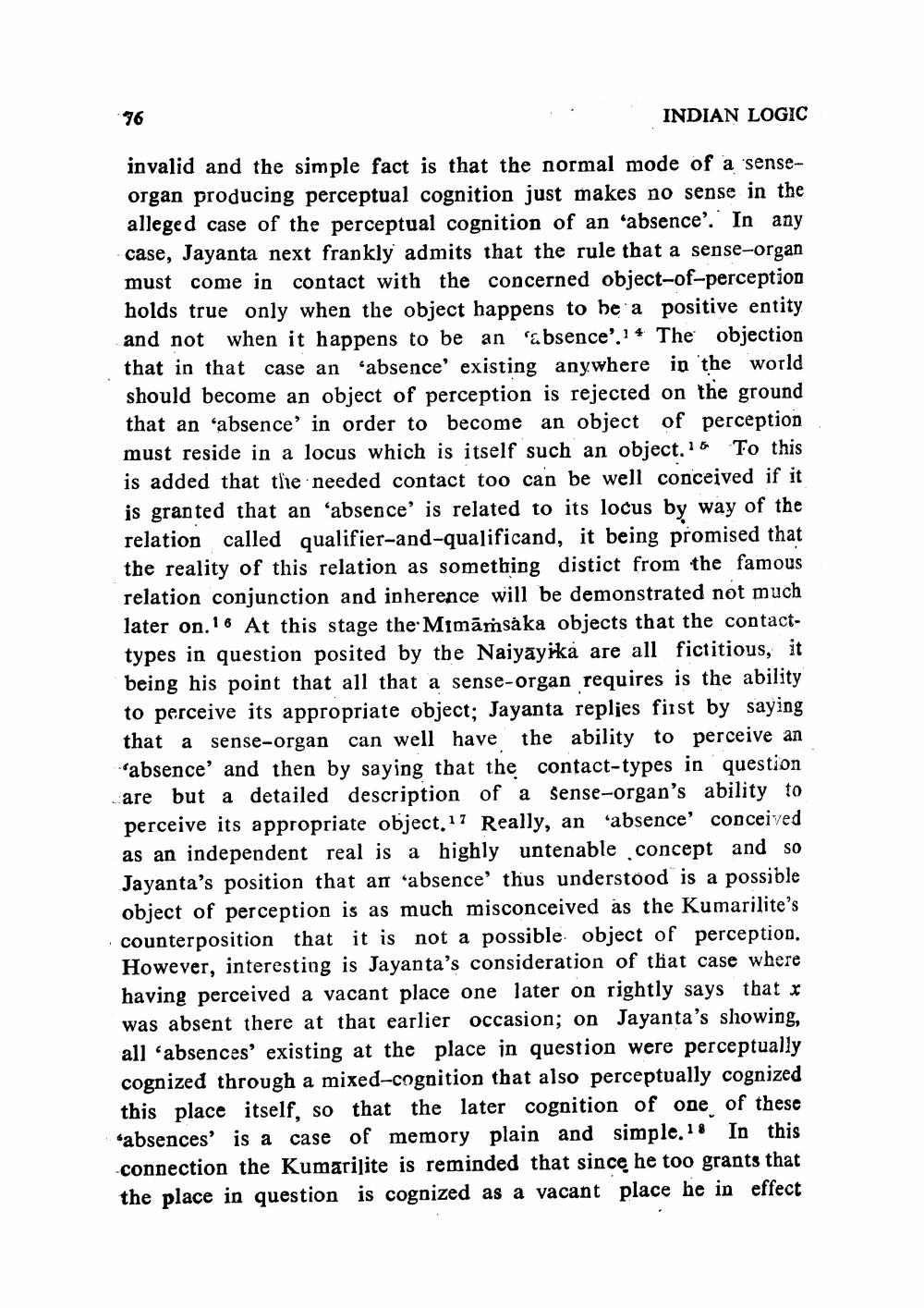________________
76
INDIAN LOGIC
invalid and the simple fact is that the normal mode of a senseorgan producing perceptual cognition just makes no sense in the alleged case of the perceptual cognition of an 'absence'. In any case, Jayanta next frankly admits that the rule that a sense-organ must come in contact with the concerned object-of-perception holds true only when the object happens to be a positive entity and not when it happens to be an absence'.14 The objection that in that case an 'absence' existing anywhere in the world should become an object of perception is rejected on the ground that an 'absence' in order to become an object of perception must reside in a locus which is itself such an object. 16 To this is added that the needed contact too can be well conceived if it is granted that an “absence' is related to its locus by way of the relation called qualifier-and-qualificand, it being promised that the reality of this relation as something distict from the famous relation conjunction and inherence will be demonstrated not much later on.16 At this stage the Mimāṁsåka objects that the contacttypes in question posited by the Naiyāyika are all fictitious, it being his point that all that a sense-organ requires is the ability to perceive its appropriate object; Jayanta repljes first by saying that a sense-organ can well have the ability to perceive an Sabsence' and then by saying that the contact-types in question are but a detailed description of a sense-organ's ability to perceive its appropriate object. 17 Really, an 'absence' conceived as an independent real is a highly untenable concept and so Jayanta's position that an 'absence' thus understood is a possible object of perception is as much misconceived as the Kumarilite's counterposition that it is not a possible object of perception. However, interesting is Jayanta's consideration of that case where having perceived a vacant place one later on rightly says that x was absent there at that earlier occasion; on Jayanta's showing, all 'absences' existing at the place in question were perceptually cognized through a mixed-cognition that also perceptually cognized this place itself, so that the later cognition of one of these absences' is a case of memory plain and simple. 18 In this connection the Kumarisite is reminded that since he too grants that the place in question is cognized as a vacant place he in effect




